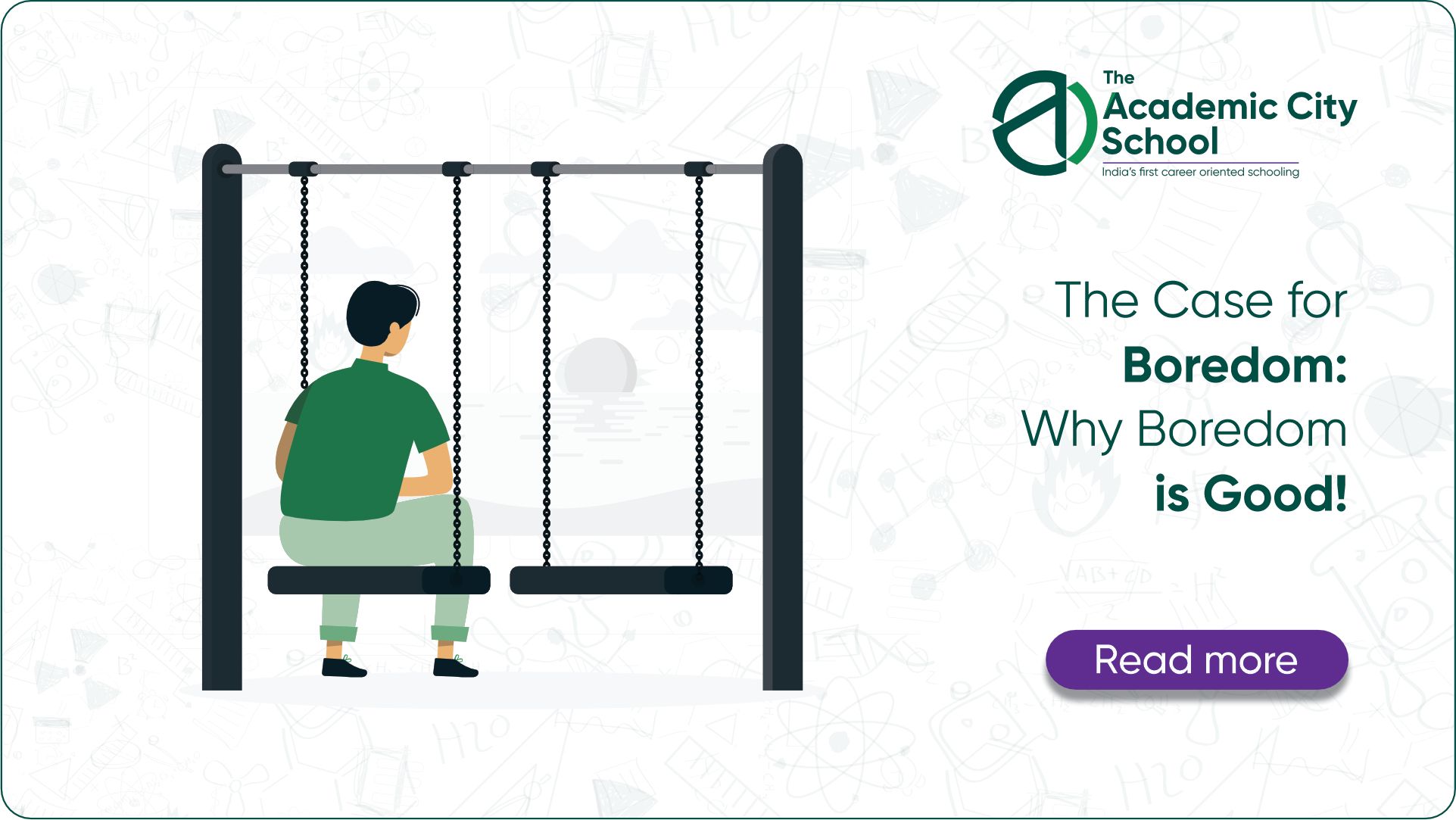The Case for Boredom: Why Boredom is Good!

Introduction
In today’s hyper-scheduled world, silence feels strange and idleness almost unacceptable. Parents rush to fill every gap with classes, screens and activities. Yet research tells us that boredom is not a problem. It in fact is a gift. Good boarding schools in India are beginning to embrace boredom as a vital tool in preparing children for life.
Why Boredom Matters
When children feel bored, their minds wander. This wandering is what sparks imagination, problem-solving and resilience. Neuroscientists have found that “default mode” brain activity, the kind that happens when we daydream, encourages creative thinking. Without boredom, children risk becoming excellent at consuming information but poor at generating ideas.
Creating Space for Stillness
Future ready boarding schools in India understand that downtime is as important as classroom time. Structured routines create balance between activity and quiet. Students may spend an evening without screens, simply reading, reflecting or enjoying unstructured play. In these moments, they learn to manage restlessness and discover inner resources.
Emotional Strength Through Boredom
CBSE residential schools in India have also noticed how boredom builds emotional depth. Children who are given time to “just be” are better at self-regulation. They develop stronger emotional resilience because they are not constantly distracted from discomfort. As one education psychologist, Dr. Sandi Mann, author of The Upside of Downtime, notes:
“Boredom is a search for neural stimulation. If we can’t find it, our mind will create it.”
This insight explains why students in boarding schools often come up with innovative ideas during unscheduled hours.
Practical Tips for Parents: Help Your Child Embrace Boredom at Home
While boarding schools provide structured downtime, parents can also create healthy space for boredom at home. A few simple ways include:
- Limit Screen Time: Avoid filling every free moment with digital devices. Idle minutes are valuable.
- Encourage Independent Play: Allow children to create their own games or stories rather than stepping in immediately with activities.
- Model Stillness: Let children see you read, reflect or simply sit quietly. This normalises pauses.
- Avoid Overscheduling: Too many classes and commitments can prevent children from discovering themselves.
- Provide Tools, Not Answers: Offer books, art supplies or a journal instead of ready-made entertainment.
Conclusion: Turning Restlessness Into Readiness
Boredom teaches children to pause and think which in turn helps them grow. By embracing boredom, boarding schools and parents together prepare children to thrive in life.
At The Academic City School, students experience this balance, where structured learning meets the freedom of stillness and where every idle moment can spark imagination.





